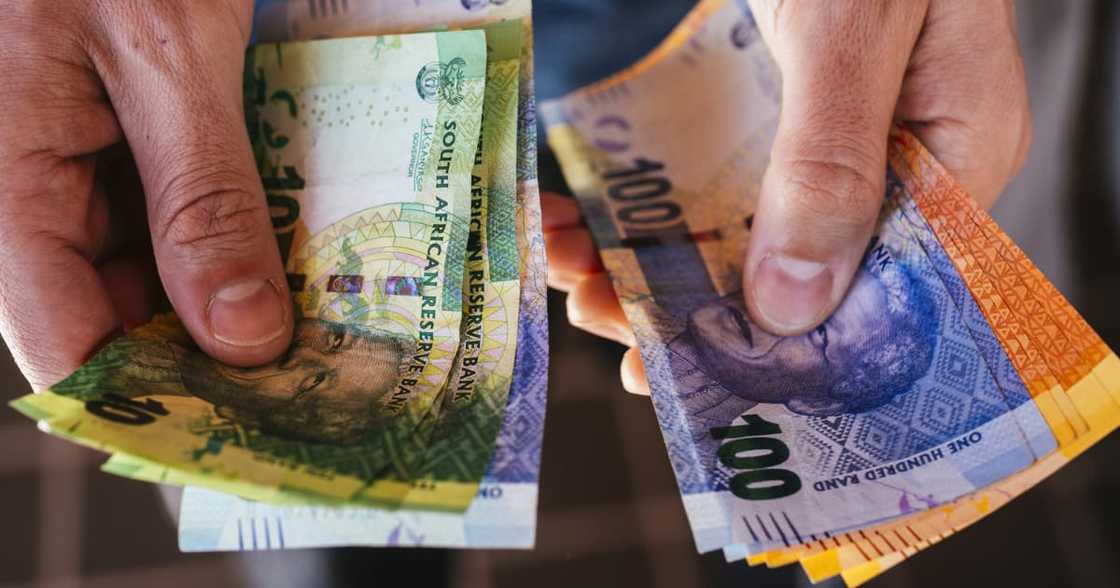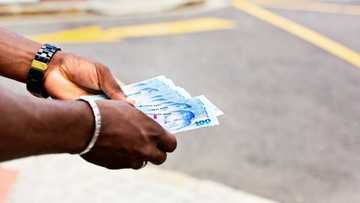SA included in IMF's R9 trillion emergency funding, SA to get R65bn
- The International Monetary Fund (IMF) is releasing R9 trillion in emergency funding to help countries recover from the Covid-19 pandemic
- South Africa will receive R65 billion in funding which will be injected into the fiscus to help the government
- The IMF recognised the damage that the recent violent unrest and the pandemic has had on South Africa's economy
PAY ATTENTION: Click “See First” under the “Following” tab to see Briefly News on your News Feed!
The International Monetary Fund (IMF) is releasing the largest amount of money in emergency funding in its history.
The IMF board of governors have agreed to the allocation of $600 billion (R9 trillion) in emergency funding. The funding was generated to help countries fight and recover from the Covid-19 pandemic.

Source: Getty Images
South Africa will get R65 billion injected into its economy and will help the government recover from the pandemic and violent unrest according to eNCA.
The IMF has acknowledged the effect of Covid-19 on South Africa economy, effectively weakening it. It has also noted the impact of the vaccine campaign.
PAY ATTENTION: Never miss breaking news – join Briefly News' Telegram channel!
IMF spokesperson Gerry Rice said that the civil unrest had cost South Africa R50 billion in economic damage according to IOL.
African countries require $450 billion (R6.8 trillion) to rebuild their economies but are only going to receive $33 billion (R500 billion).
Rand breaks R15 to the dollar, weakest exchange since March with repercussions for SA
The South African rand broke the R15 to the dollar level on Thursday, 19 August, trading at R15.03 to the US dollar. This happened just three hours after the Johannesburg Stock Exchange (JSE) opened. At the time of writing this report, the rand was trading at R15.18 to the dollar.
The dollar is continuing to strengthen, thus weakening the rand. Expectations of an increase in interest rates have reportedly been decreased given a better-than-forecast consumer price inflation rate for July. The rand has reached its weakest level since March, according to Moneyweb.
According to SABC News, on Tuesday, trading on the JSE was delayed. This was due to the large trading volumes that extended to a record R145 billion. The trading still needs to be processed.
Rand slumps, weakest level in 2 months amid protests, July report
Previously, Briefly News reported that the rand fell to its lowest level versus the dollar in more than two months as violent protests continued in parts of South Africa following the arrest of former President Jacob Zuma weeks ago.
In the country's two wealthiest regions, Gauteng and KwaZulu-Natal, violent protests shut down businesses and disrupted transportation networks, according to BusinessTech.
The rand fell by 1.4% against the dollar since 30 April and it was trading at R14.47 to the dollar at the time. Analyst at Rand Merchant Bank in Johannesburg Siobhan Redford said that the South African government needed to take action to stop the current violent protests that swept over the Gauteng and KwaZulu-Natal provinces, according to a report by Fin24.
The violent protests were compounded by the extension of lockdown adjusted Level 4, which saw businesses struggle to stay afloat and robbed millions of people of their income in a country with a 32.6% unemployment rate.
Source: Briefly News



